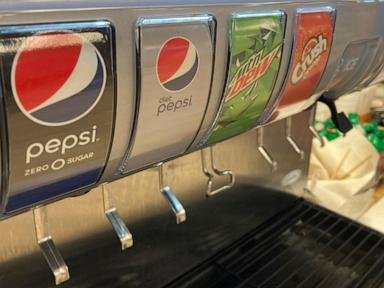PepsiCo got a bump to fourth quarter profits thanks in part to lower charges and continued price hikes, but higher prices have weakened consumer demand for the company’s snacks and drinks.
The New York company said Friday that it expects organic revenue growth of at least 4% this year, less than half the 9.5% growth that PepsiCo booked in 2023.
Shares dropped 1% before the opening bell even as the company announced a 7% boost to its annual dividend, and said that it would buy back about $1 billion of its shares.
For the three months ended Dec. 30, PepsiCo earned $1.3 billion, or 94 cents per share. That compares with $518 million, or 37 cents per share, a year earlier.
Excluding an impairment charge and other items, earnings were $1.78 per share. The performance topped the $1.72 per share analysts polled by Zacks Investment Research expected.
Revenue slipped to $27.86 billion from $28 billion and it was a rare miss for the company. Wall Street had projected revenue of $28.24 billion.
Those revenues retreated in tandem with volume as the company got more money for products, but sold less of them.
Volume for Frito-Lay North America fell 2% in the final quarter of the year, and beverages North America in North America slid 6%. Volumes for Pepsi convenience foods in Latin America also declined 6%, and there was a 1% decline in Europe. In Asia Pacific, Australia and New Zealand and the China region, convenience foods volume fell 4%.
Volume fell 8% in the Quaker Foods North America unit, as the division dealt with a recall.
Pepsi has wrestled with higher prices and how to pass those costs along, raising prices by double-digit percentages for several quarters.
Global supermarket chain Carrefour said last month that it will stop selling PepsiCo products in its stores in France, Belgium, Spain and Italy due to price increases for popular items like Lay’s potato chips, Quaker Oats, Lipton Iced Tea and its namesake soda.
PepsiCo said at the time that it would continue to engage in good faith with Carrefour to try to ensure that it products remained available.
Its profits are up, though higher prices have dragged down sales as people trade down to cheaper brands. PepsiCo has been shrinking package sizes of some products in that environment.
PepsiCo Inc., based in Purchase, New York, has said price increases should ease and largely align with inflation, which has fallen considerably.
PepsiCo has pointed to higher costs for grain and cooking oil as it has raised prices. Costs for those food commodities surged following Russia’s invasion in Ukraine but have since retreated on global markets from record highs in 2022.
